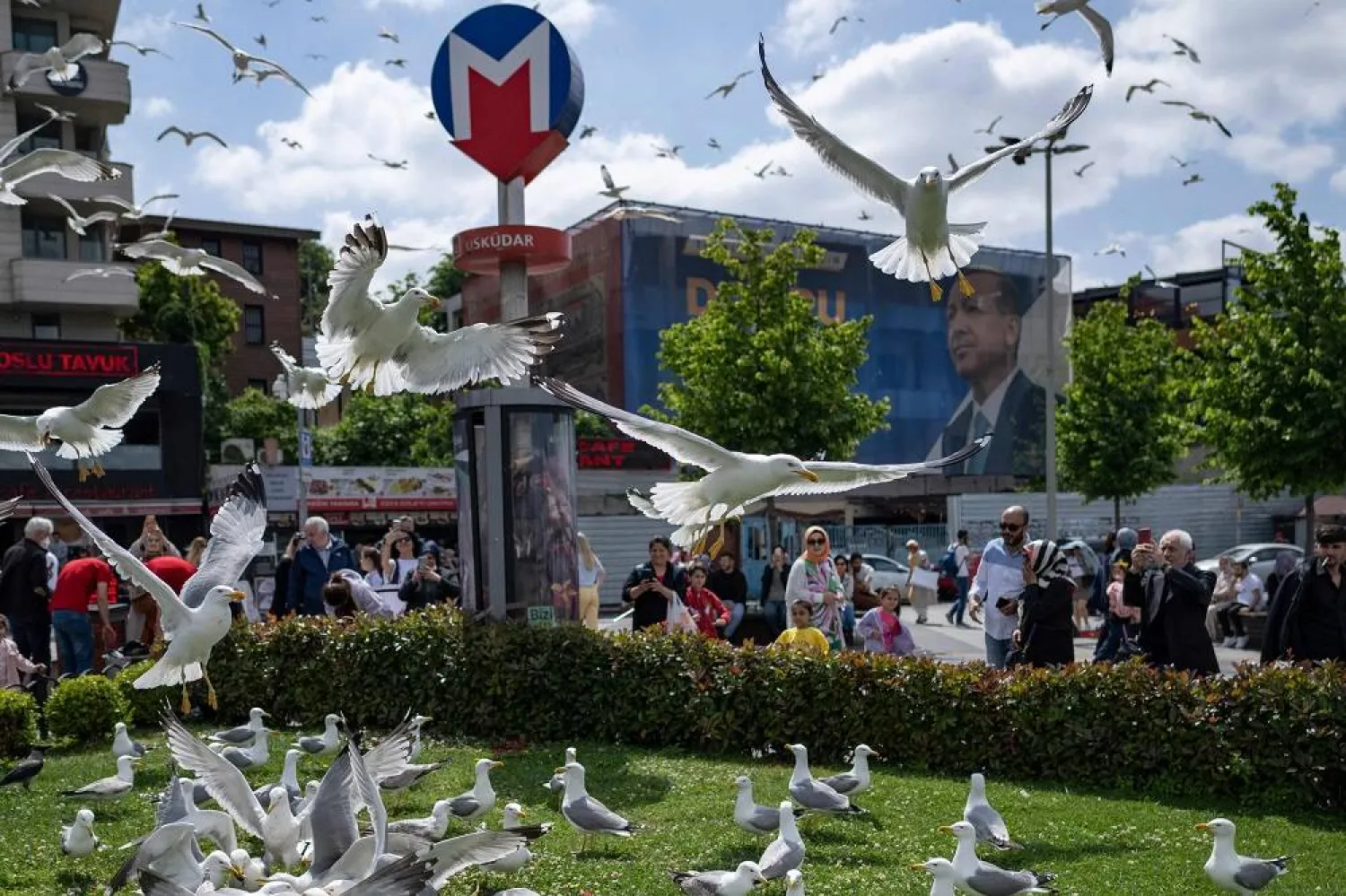As Türkiye's lira hit a record low ahead of the country's election decider on Sunday, the currency is looking increasingly dysfunctional with investors concerned about what may be in store if Recep Tayyip Erdogan secures another decade in power.
"Erdonomics", as the 69-year old president's unorthodox, growth-chasing policies are often dubbed, have driven the lira down 80% over the last five years, embedding an inflation problem and shattering Turks' confidence in their currency.
Since a painful 2021 crisis, the authorities have taken an increasingly hands-on role in foreign exchange markets, to the point that some economists now openly debate whether the lira can still be regarded as freely-floating.
Its daily moves have become unnaturally small and mostly go in one direction - down.
Tens of billions of dollars of FX and gold reserves have been used up - another sign of systematic micro-management.
Exporting firms are now obliged to sell 40% of foreign exchange revenues to the central bank, while a lira depreciation-protected bank deposit scheme that helped snuff out the 2021 turmoil remains a crucial but potentially costly defense.
"The key thing is that the lira is being artificially held in place," said Paul McNamara, director of emerging market debt at asset manager GAM, likening some of the measures to de facto capital controls.
Depositors have put some $33 billion into depreciation-protected bank accounts in the last two months, bringing the total to $121 billion - almost a quarter of all Turkish deposits.
"It is basically impossible to see a nice smooth resolution to all of this," McNamara said.
Credibility
Government insiders who spoke to Reuters in recent days have said there is now disagreement about whether to stick with the current economic strategy that prioritizes low interest rates, or switch to something more orthodox after the election.
The lira's close management has limited its drop to just over 2% since the first round vote two weeks ago, but other key markets have been signaling strong concerns that Erdogan will not change course.
The cost of insuring Türkiye's debt against default has shot up 40%. Benchmark international market bonds have fallen back 10%-15% and key FX market volatility gauges that look a year or more ahead have hit record highs.
Daron Acemoglu, an Institute Professor at the Massachusetts Institute of Technology, says the problem is the policy mix and dwindling FX and gold reserves, which are now $105 billion in gross terms but $115 billion in the red if FX swap arrangements and loans are excluded from the calculations.
"I am convinced that what we have right now cannot continue," Acemoglu said.
"The dollar-protected lira accounts, are they credible?" he asked, pointing to their potential cost to the government in the event of a full-blown crisis, and the fact that parallel exchange rates are now widely offered in Türkiye's bazaars due to the demand for dollars.
"We are getting back to the 1990s," he said referring to the build-up phase of one of Türkiye's most damaging crises that culminated in a devastating devaluation in 2001.
The final countdown?
Eyes are now on the FX reserves and the lira as it surpasses 20 to the dollar, the latest major milestone in its long descent.
Acemoglu said it was difficult to predict if or when things could come to a head. A strong tourist season should bolster reserves again in the short-term, while recent injections into the state coffers from "friendly" countries and Russia have also helped.
In the run-up to the election analysts at JPMorgan had forecast that the lira would fall as far as 30 per dollar without a clear shift back towards orthodox policy.
They now assume Erdogan secures victory on Sunday and makes good on his campaign promises to boost incomes and rebuild the country after February's earthquake.
Some investors are concerned that if the market spirals again, authorities might resort to more draconian capital controls, something the government has repeatedly said is not on the cards, as it seeks to cover its $230 billion, or 25% of GDP, external funding gap.
It has already spent years squeezing the life out of international lira lending markets to the degree that Bank of England data shows trading in major centers like London has shriveled to less than $10 billion a day on average from $56 billion back in 2018.
The increasing currency market dysfunction though has skewered optimism that previously brought many foreign investments to Türkiye.
"These weren't seen as cheap assets, they were seen as jewels," MIT's Acemoglu said of the M&A banking boom heyday. On the situation Erdogan now faces, assuming he wins? "I don't necessarily see an easy way out".









